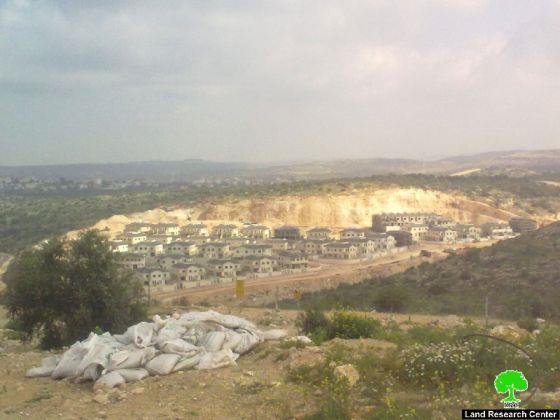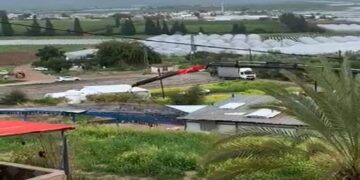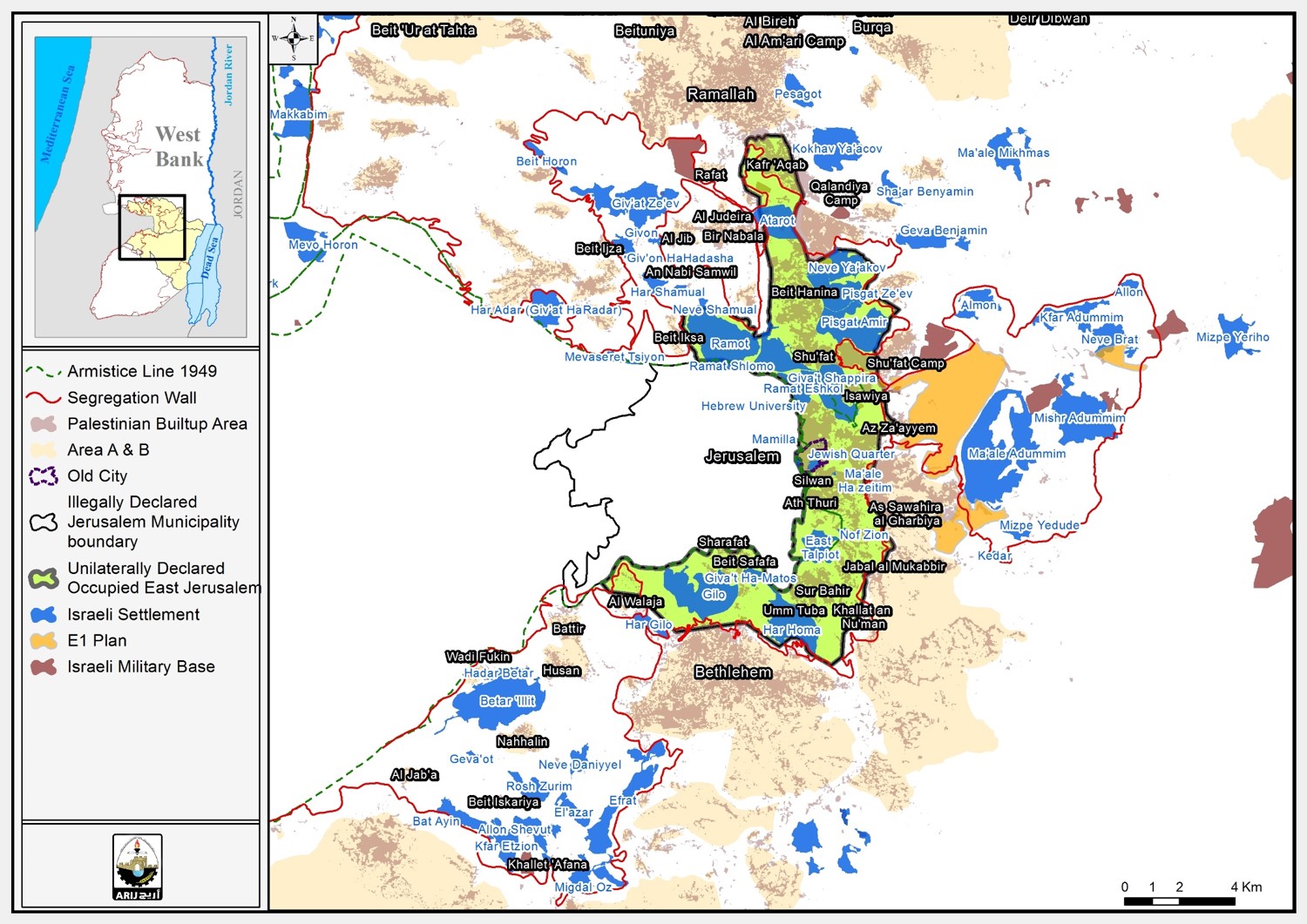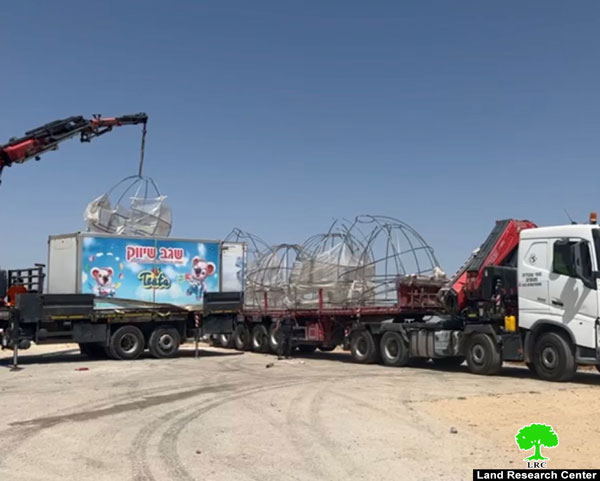Violation: Claiming property over 68.546 dunums
Location: Mas-ha/ Salfit governorate
Date: 03/03/2013
Details:
On 03/03/2013, AL Quds newspaper published an advertisement by the so-called Land Registration Department of Israel. According to the ad, an Israeli company by the name of Aloni Elkana- owned by a group of colonists living in "Elkana" colony- claims its ownership of about 68.546 dunums in Wijih Al-Shami, roadblock number 3, segment 41 in Mas-ha.
According to the mentioned company, the targeted land is state property they are free to buy from official authorities in Israel. Mr. Wael Amer, head of Mas-ha village council, affirmed to an LRC observer that, "Farmers have been denied access to the targeted land since 2000, i.e. after building the Apartheid Wall on Mas-ha lands and destroying vast areas of the village. Besides, the targeted land is near Elkana colony so farmers are not allowed to get near it."
The Apartheid Wall is a means to seize more agricultural lands:
- The wall built on Mas-ha lands is 3 km long. The body of the wall is formed of 8m- high cement segments; trenches; and electronic wires. A wire is 40-50 m wide.
- The Apartheid Wall led to confiscating and/or isolating about 95% of Mas-ha lands, which is 5500 dunums. The wall surrounds the village from north, west and south. That tuned the village into an isolated gathering where the once farmers and merchants are now unemployed. The wall also hinders the urban expansion in the village.
- For building the wall, vast areas of land planted with olive, citrus, fruit and vegetables were confiscated. The area of the land is about 15-20 dunums. The wall also led to uprooting 1000 olive trees; confiscating the only artesian well in the village; and destroying 7 sheds used for animal production.
- The construction of the Apartheid Wall played an imminent role in destroying Mas-ha market which profited hundreds of families in the village and its surroundings by isolating it and rendering 75% of its population unemployed. The wall only left one outlet to Mas-ha which is nearby Biddya village. The Israeli occupation authorities allowed shepherds to sheep graze in the village in a bid to destroy agriculture.
- The wall totally isolated a house in the village which is besieged and fenced from all sides. The residents of the house move under surveillance and the householder is not allowed to own the property or fix the house. The wall also prohibited Kafr Qasim within the Green Line from visiting their relatives in Mas-ha.
- The Israeli Settlement Council took advantage of the confiscated lands where they started building houses for the colonists and news roads for each of the three colonies in the area (which are Elkana A, Elkana B, and Etz Efrayim).













